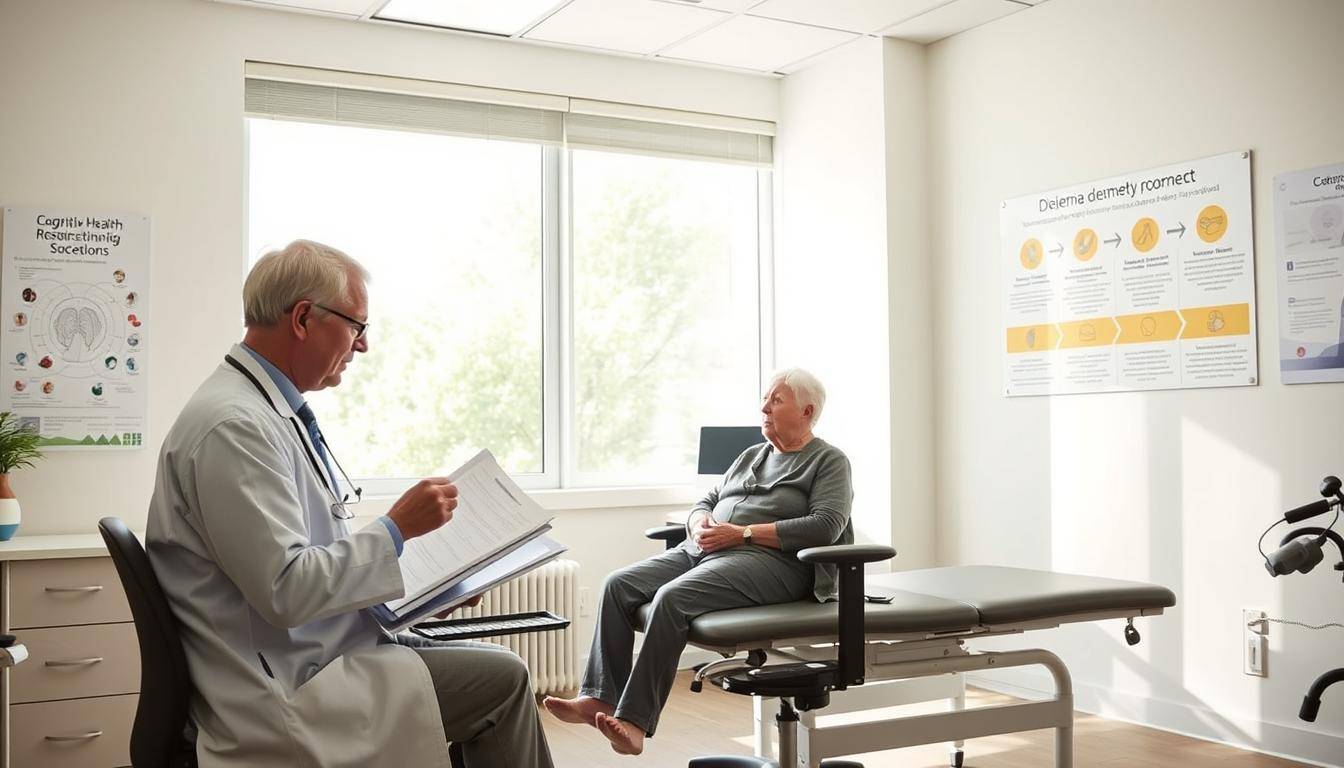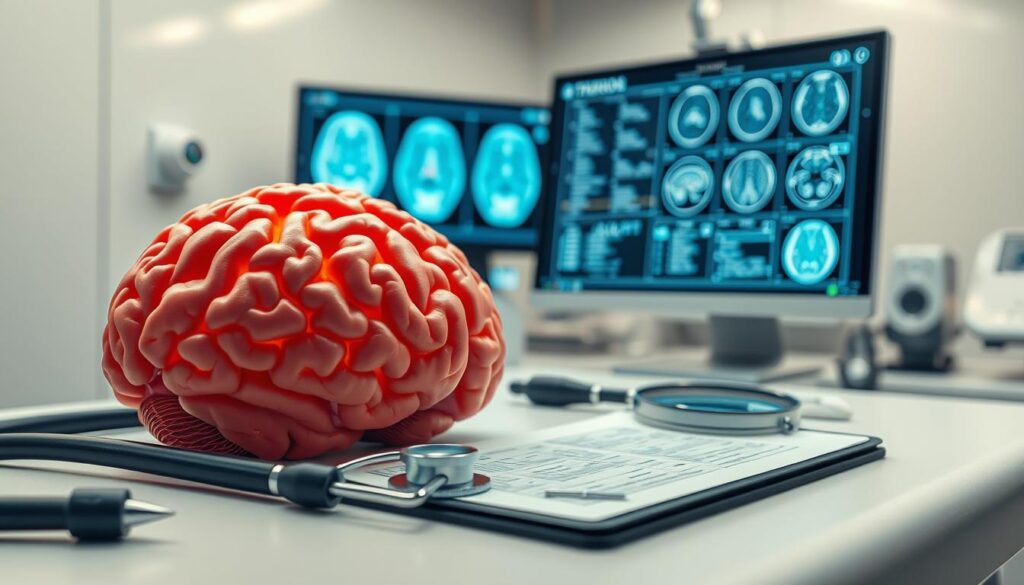Welcome to Dementia World elderly home services



Nearly 850,000 people in the UK are living with dementia. This condition greatly affects their lives and those of their families.
Figuring out if someone has dementia is a detailed process. It uses many medical tests and assessments. There’s no single test for dementia. Doctors use a wide range of methods to make an accurate diagnosis.
This article explains how doctors diagnose dementia. It covers cognitive tests, imaging scans, and the important role of healthcare professionals. They help figure out the cause of symptoms.
Diagnosing dementia involves several steps. It starts with noticing early signs and then talking to healthcare experts. This process is complex and needs a detailed approach.
Spotting the early signs of dementia is key for early treatment. Symptoms include memory loss, cognitive decline, and behaviour changes. As one expert says,
“Early detection of dementia can significantly improve the quality of life for those affected.”
People might struggle with daily tasks, feel confused, and make poor judgments. It’s important to notice these signs to get medical help quickly.

If you notice these symptoms, seeing a healthcare professional is essential. Early diagnosis and treatment can greatly improve care.
Don’t wait to get medical advice. Early action can greatly improve the quality of care you receive.
GPs are the first step in assessing symptoms and referring to specialists if needed. They are the first contact for those showing signs of dementia.
Specialists, like neurologists and geriatric psychiatrists, handle the diagnosis and care plans. They do detailed checks and guide on the best care and treatment.
Diagnosing dementia requires a mix of tests. These include cognitive checks, neurological exams, and brain scans. These tools help doctors understand how much and what kind of brain damage there is. This knowledge is key to creating a good care plan.
Tests that check how well someone thinks and remembers are very important. They help spot cognitive impairment. These tests look at memory, language, and solving problems.
The Mini-Mental State Examination (MMSE) is a well-known test. It checks if someone can count, remember words, and follow instructions. The score from this test shows how severe the brain problems are.
The Montreal Cognitive Assessment (MoCA) is another important tool. It tests different brain skills like attention, memory, and spatial awareness. It’s great for catching early signs of brain problems.
Neurological tests are vital for diagnosing dementia. They help find any brain conditions that might be causing memory loss. These tests include a physical check-up and looking at the person’s health history.

MRI (Magnetic Resonance Imaging) and CT (Computed Tomography) scans show brain changes. They help doctors find out if someone has dementia and what might be causing it.
PET (Positron Emission Tomography) and SPECT (Single Photon Emission Computed Tomography) scans check how the brain works. They help doctors diagnose dementia and figure out what type it is.
Lab tests and biomarkers help confirm dementia and find its causes. Blood tests can check for things like vitamin or thyroid problems that might affect the brain.
Diagnosing dementia is a complex task. It involves many tests and assessments. Knowing about this process helps people and their families understand what’s happening.
Getting a diagnosis early is key. It helps in managing the condition and planning for the future. Healthcare professionals use a detailed approach to accurately identify dementia.
The diagnostic process includes several evaluations. These include cognitive tests, neurological checks, brain scans, and lab tests. These steps help doctors rule out other causes and find the real reason for symptoms.
Understanding how dementia is diagnosed and the need for early detection is important. It encourages individuals to take action and plan for their future.